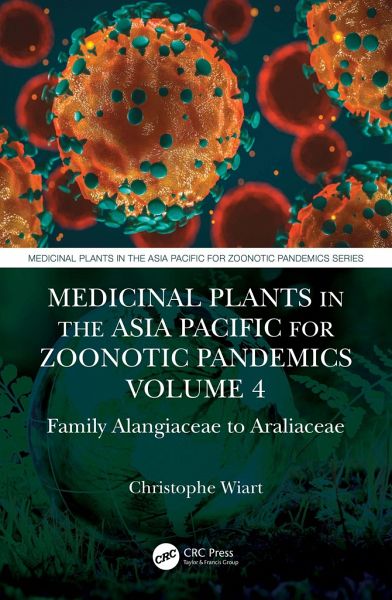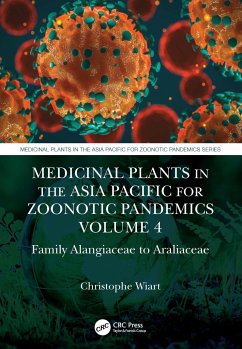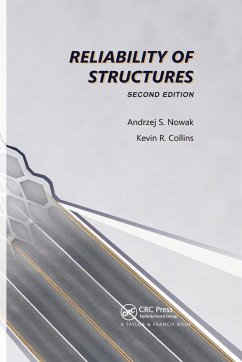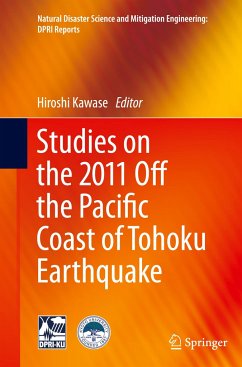
Medicinal Plants in the Asia Pacific for Zoonotic Pandemics, Volume 4
Family Alangiaceae to Araliaceae
Versandkostenfrei!
Versandfertig in 6-10 Tagen
104,99 €
inkl. MwSt.
Weitere Ausgaben:

PAYBACK Punkte
52 °P sammeln!
Viruses and plagues have constantly threatened the survival of humanity since the evolution of modern man. Medical advances, thanks to the application of remedial plants, have helped to fight back against some of the most nefarious bacterial and viral infections, giving humanity a fighting chance.This fourth volume in the Medicinal Plants in the Asia Pacific for Zoonotic Pandemics series provides an unprecedented, comprehensive overview of the pharmacological activity of more than 100 medicinal plants used for the treatment of microbial infections in Asia and the Pacific. The text discusses th...
Viruses and plagues have constantly threatened the survival of humanity since the evolution of modern man. Medical advances, thanks to the application of remedial plants, have helped to fight back against some of the most nefarious bacterial and viral infections, giving humanity a fighting chance.
This fourth volume in the Medicinal Plants in the Asia Pacific for Zoonotic Pandemics series provides an unprecedented, comprehensive overview of the pharmacological activity of more than 100 medicinal plants used for the treatment of microbial infections in Asia and the Pacific. The text discusses the actions of such plants against viruses and bacteria representing a threat of epidemic and pandemic diseases, including COVID-19, with an emphasis on the molecular basis and cellular pathways. Scientific names, botanical classifications and descriptions, medicinal uses, and chemical constituents are presented, along with chemical structures and a vast selection of bibliographical references.
FEATURES
Introduces the molecular mechanism of natural products from medicinal plants in Asia on bacteria and viruses
Includes phylogenetic presentations of a selection of medicinal plants and a chemotaxonomical rationale of antiviral and antibacterial actions
Discusses the chemical structure-activity relationship, pharmacokinetics, and bioavailability of antimicrobial principles
This book is a useful research tool for postgraduates, academics, and the pharmaceutical, herbal, and nutrition industries looking forward to developing antiviral and antibacterial agents from medicinal plants in Asia. Medicinal Plants in the Asia Pacific for Zoonotic Pandemics is a critical reference for anyone involved in the discovery of leads for the treatment of pandemic viral, bacterial, and infections.
"This book will be an important resource for scientists, as well as people passionate about helping to save these critical resources. Perhaps a new drug lead will be identified from at least one of these plants."
-From the Foreword by Dr. Mark S. Butler, MSBChem Consulting, Brisbane, Australia
This fourth volume in the Medicinal Plants in the Asia Pacific for Zoonotic Pandemics series provides an unprecedented, comprehensive overview of the pharmacological activity of more than 100 medicinal plants used for the treatment of microbial infections in Asia and the Pacific. The text discusses the actions of such plants against viruses and bacteria representing a threat of epidemic and pandemic diseases, including COVID-19, with an emphasis on the molecular basis and cellular pathways. Scientific names, botanical classifications and descriptions, medicinal uses, and chemical constituents are presented, along with chemical structures and a vast selection of bibliographical references.
FEATURES
Introduces the molecular mechanism of natural products from medicinal plants in Asia on bacteria and viruses
Includes phylogenetic presentations of a selection of medicinal plants and a chemotaxonomical rationale of antiviral and antibacterial actions
Discusses the chemical structure-activity relationship, pharmacokinetics, and bioavailability of antimicrobial principles
This book is a useful research tool for postgraduates, academics, and the pharmaceutical, herbal, and nutrition industries looking forward to developing antiviral and antibacterial agents from medicinal plants in Asia. Medicinal Plants in the Asia Pacific for Zoonotic Pandemics is a critical reference for anyone involved in the discovery of leads for the treatment of pandemic viral, bacterial, and infections.
"This book will be an important resource for scientists, as well as people passionate about helping to save these critical resources. Perhaps a new drug lead will be identified from at least one of these plants."
-From the Foreword by Dr. Mark S. Butler, MSBChem Consulting, Brisbane, Australia














